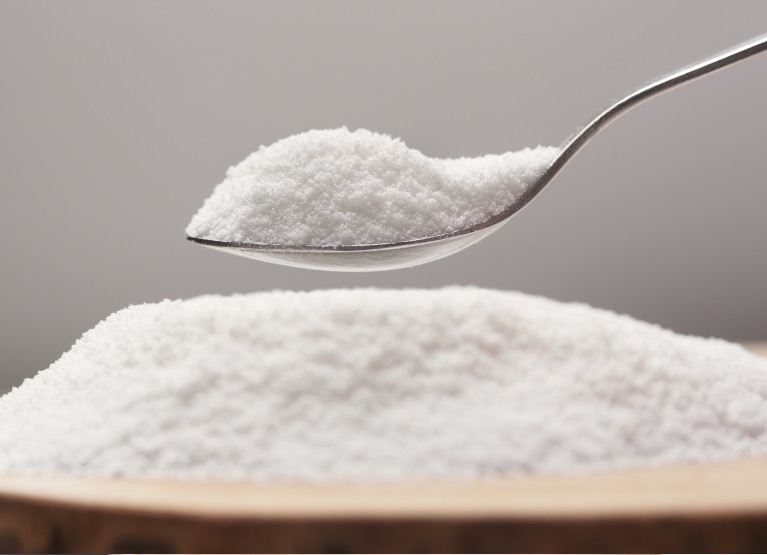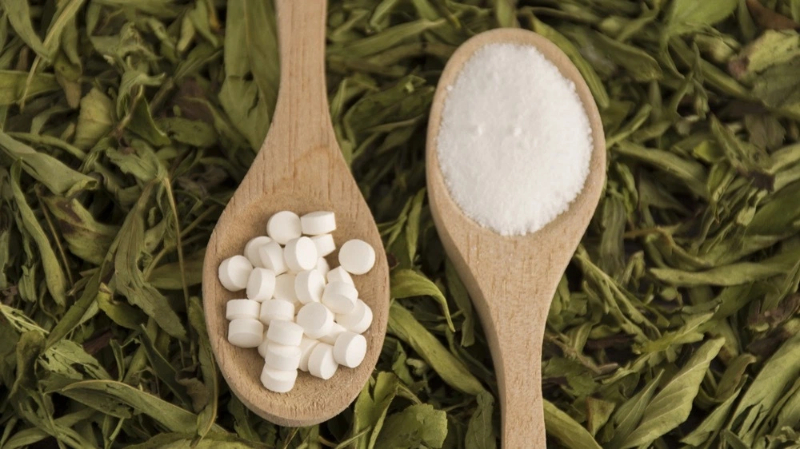Views: 222 Author: Sara Publish Time: 2025-09-18 Origin: Site








Content Menu
● How Sucralose Affects Metabolism
● Potential Carcinogenic Risks
● Effects on Immune Function and Cancer Treatment
● Effects on Reproductive Health
● Bioaccumulation and Metabolism
● Recommended Intake and Safety Guidelines
>> 1. What health effects does sucralose have on metabolism?
>> 2. Can sucralose harm gut bacteria?
>> 3. Is it safe to cook or bake with sucralose?
>> 4. Does sucralose affect immune function or cancer treatments?
>> 5. What are the risks of sucralose consumption during pregnancy and breastfeeding?
Sucralose is one of the most commonly used artificial sweeteners worldwide, found in a wide range of food and beverage products. Marketed as a zero-calorie alternative to sugar, it is about 600 times sweeter than sucrose (table sugar). While sucralose offers the appeal of sweetness without added calories, what exactly does it do to the human body? This article explores the health effects, metabolic impacts, potential risks, and safety concerns associated with sucralose consumption, providing a comprehensive insight for consumers and manufacturers alike.

Sucralose is a chlorinated derivative of sucrose, chemically modified to resist digestion and absorption, thus delivering sweetness without calories. Approved by many global food safety authorities including the FDA and EFSA, sucralose is widely used in beverages, baked goods, dairy products, and tabletop sweeteners. Despite its popularity, research over the past decade has uncovered multiple biological effects of sucralose that merit understanding.
Studies have shown that sucralose consumption can alter glucose and insulin metabolism in the body. One important mechanism is a reduction in insulin sensitivity, which may contribute to impaired glucose regulation.
- A human study found sucralose intake increased peak plasma glucose concentrations and decreased insulin sensitivity by 23%, which compromises the body's ability to manage blood sugar levels.
- Research published in Cell Metabolism revealed that consuming sucralose along with carbohydrates rapidly impaired glucose metabolism and disrupted gut-brain control mechanisms regulating glucose.
This metabolic dysregulation may raise the risk of developing metabolic syndrome and type 2 diabetes, conditions linked with obesity and cardiovascular disease.
In addition, recent studies suggest that sucralose can cause a biphasic insulin secretion response. Initially, sucralose may increase insulin secretion acutely, but chronic consumption eventually suppresses insulin secretion, contributing further to impaired glucose control and diabetes risk. Elevated insulin levels or hyperinsulinemia, observed in some studies, contribute to obesity, cardiovascular disease, and cancer development risks.
Sucralose has notable effects on the gut microbiome—the complex ecosystem of bacteria living in the digestive tract.
- Studies report that sucralose reduces beneficial gut bacteria populations by up to 50%, leading to gut dysbiosis (microbial imbalance).
- Such disruption can lead to increased intestinal permeability, commonly referred to as "leaky gut," which allows harmful substances to pass into the bloodstream, triggering inflammation.
- Sucralose may also exacerbate symptoms of Irritable Bowel Syndrome (IBS), Crohn's disease, and ulcerative colitis due to its pro-inflammatory effects on the intestinal lining.
Latest research indicates that even low doses of sucralose, far below recommended daily intake limits, can alter the gut microbiota composition toward a harmful profile with increased opportunistic pathogens. This disruption is associated with systemic inflammation and impaired immune responses. Animal studies show sucralose-induced liver inflammation correlating with gut microbiota changes, suggesting a gut-liver axis effect causing physiological dysfunction beyond just the gut.
While sucralose is generally considered safe within permitted intake levels, some studies suggest potential carcinogenic risks, especially related to thermal degradation products.
- When heated to high temperatures (such as in baking), sucralose can break down and generate toxic chloropropanols, compounds known to be genotoxic and carcinogenic.
- Additionally, sucralose's chemical instability in the body may release chlorinated aromatic polycyclic hydrocarbons (CI-PAHs), which are associated with cancer risks.
Animal studies have shown that long-term sucralose exposure induces increases in the number and size of cancerous colon tumors, likely mediated by exacerbation of gut inflammation and impaired gut barrier function. Such data warrant caution regarding the long-term consumption of sucralose, especially in baked or processed foods exposed to heat.

Emerging research has linked sucralose intake to suppressed immune responses and it may also undermine the efficacy of cancer immunotherapy.
- Sucralose consumption has been shown to impair immune cell function, decreasing the body's ability to fight infections and cancer.
- A recent study found that sucralose shifts gut bacteria to increase degradation of arginine, an amino acid critical for T cell function. This amino acid depletion led to poorer outcomes in mice undergoing immune checkpoint inhibitor cancer therapies.
- Patients consuming high levels of sucralose exhibited worse responses to immunotherapy treatments like anti-PD1 inhibitors compared to those with low intake.
- Supplementation with arginine or its precursor citrulline was able to mitigate these negative effects, suggesting potential therapeutic interventions.
Such findings indicate sucralose may not only impact immune health broadly but could also weaken advanced cancer treatments by disrupting gut-immune system interactions.
A recent animal study highlighted that chronic sucralose exposure caused testicular damage and impaired male fertility.
- The sweetener induced oxidative stress in testicular cells, disrupted cellular autophagy, and altered testicular morphology.
- Sperm viability declined, and steroid hormone production was suppressed.
- This raises concerns over potential reproductive risks for humans, especially with chronic high intake.
Sucralose in Human Breast Milk and Infants
Research indicates that sucralose can pass into breast milk following maternal consumption.
- Studies have detected variable concentrations of sucralose in breast milk, raising concerns about infant exposure.
- Long-term effects on infant metabolism, gut microbiota, and taste development remain unclear, but caution is advised during pregnancy and breastfeeding.
Contrary to earlier assumptions that sucralose is not metabolized and is quickly excreted, recent animal studies reveal bioaccumulation in tissues weeks after cessation of intake.
- Sucralose metabolites have been identified that were previously unknown, challenging the notion of sucralose's inertness in the body.
- These findings call for re-examination of its regulatory safety status.
Effects on Brain and Appetite Regulation
Sucralose may also influence brain functions related to appetite and cognition.
- Studies demonstrate that consumption of sucralose can increase feelings of hunger and craving for sweet, calorie-dense foods, potentially undermining weight management goals.
- Some research links artificial sweeteners including sucralose to cognitive declines such as impaired verbal fluency and global cognitive function, though further studies are needed.
Authorities such as the European Food Safety Authority (EFSA) recommend a daily acceptable intake (ADI) for sucralose of 15 mg per kg of body weight. Staying within these limits minimizes potential health risks. However, accumulating evidence of adverse effects calls for cautious use, especially avoiding sucralose combined with carbohydrates or in heated processed foods. Consumers are encouraged to prefer natural sweeteners and functional polyols with proven health benefits.
Sucralose, although popular as a zero-calorie sweetener, impacts the body in several significant ways. It can alter metabolism, reduce insulin sensitivity, disrupt gut microbiota balance, and potentially lead to inflammatory bowel conditions. When heated, sucralose may generate carcinogenic compounds. It has been linked to suppressed immune function and reduced effectiveness of cancer treatments, as well as reproductive harm in males and exposure risks for infants via breast milk. Moreover, sucralose may increase hunger and impact cognition negatively. While regulatory bodies permit its use within set limits, consumers and manufacturers should exercise caution, prioritizing natural and functional sweetening alternatives to safeguard long-term health.

Sucralose can reduce insulin sensitivity and impair glucose metabolism, increasing the risk of metabolic syndrome and type 2 diabetes. It may cause an initial increase but eventual suppression of insulin secretion, contributing to diabetes development.
Yes, sucralose significantly alters gut microbiota, reducing beneficial bacteria and promoting pathogens, leading to gut inflammation and impaired intestinal barrier function.
No, high heat causes sucralose to break down into toxic compounds that may have carcinogenic potential. Its use in baked or heated processed foods is inadvisable.
Yes, sucralose impairs immune cell functions and shifts gut bacteria that reduce arginine levels, which are critical for T cell activity, thereby decreasing the effectiveness of cancer immunotherapy.
Sucralose passes into breast milk and may affect infants' gut microbiota and metabolism. Caution is advised during pregnancy and lactation to avoid potential developmental risks.
[1](https://usrtk.org/sweeteners/sucralose-emerging-science-reveals-health-risks/)
[2](https://mindstreamintegrative.com/blog/rethinking-artificial-sweeteners-the-hidden-risks-of-sucralose-and-artificial-sweeteners/)
[3](https://www.medschool.pitt.edu/news/sucralose-could-make-cancer-treatment-less-effective)
[4](https://pmc.ncbi.nlm.nih.gov/articles/PMC12025785/)
[5](https://www.cnn.com/2025/03/29/health/artificial-sweetener-sucralose-hunger-signals-wellness)
[6](https://keck.usc.edu/news/calorie-free-sweeteners-can-disrupt-the-brains-appetite-signals/)
[7](https://www.endocrine.org/news-and-advocacy/news-room/endo-annual-meeting/endo-2025-press-releases/chen-press-release)
[8](https://www.dzd-ev.de/en/press/press-releases/press-releases-2025/artificial-sweeteners-stimulate-hunger-signals-in-the-bra)
[9](https://www.today.com/health/diet-fitness/artificial-sweeteners-cognitive-decline-study-rcna228871)
[10](https://www.upmc.com/media/news/073125-artificial-sweetner)
